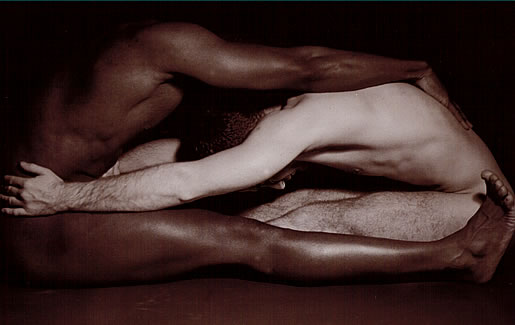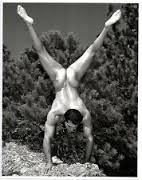Moods, depression, meditation and yoga - find a practice that is healing
This morning I woke up feeling anxious. It was a combination of too much work, relationship problems, deadlines, elderly parents and just being in the middle of winter. On a winter's morning in the Cape, I am meant to jump out of bed and go meditate before the day begins. It is dark, more interesting to play with my smart phone and generally delay getting out from under the duvet.
But I did get out of bed. I know from experience that doing yoga or meditating actually helps me understand mental states I am experiencing and gives me some angle on what to do with them. The reality is that life can weigh on us at any time, in a number of ways.
A monk once told me a tale about cleaning the toilet at the monastery. He went away on a monastic pilgrimage and could not wash the toilet that he usually cleaned as a daily practice. When he got back, other people had not really kept it clean and it was a nasty mission to start cleaning it all over again. His moral was that meditation work is something that needs to be a regular practice. In that way we keep our minds fresh and clear. Leaving it only builds up issues, tension, sediment, and getting back to a state of serenity takes more time.
This morning I sat down on my meditation cushion, lit two candles, lit three sticks of incence, bowed three times and struck a healing meditation bowl to release its resonant sound into the world. I meditated first on my breath and as I began to calm and focus I explored how I was really feeling.
 We often think that meditation is all about reaching a state of bliss or even being spaced out. Meditation can be about a state of well-being - known as samadhi. But it can also be about truth and insights. This is usually referred to as vipassana - insight meditation. Meditation is premised on our untensed, relaxed mind which is naturally full of joy and can even expand to a raging sense of bliss. Regular practice helps you recognise this underlying state and restore it through practice.
We often think that meditation is all about reaching a state of bliss or even being spaced out. Meditation can be about a state of well-being - known as samadhi. But it can also be about truth and insights. This is usually referred to as vipassana - insight meditation. Meditation is premised on our untensed, relaxed mind which is naturally full of joy and can even expand to a raging sense of bliss. Regular practice helps you recognise this underlying state and restore it through practice.But other times we are not happy; we are stressed or even depressed. The other type of meditation is about recognising what is going on and just being with that. Pema Chödrön often focusses on teachings about accepting difficult mental states, not chasing them away, just being with them, compassionately, without heavy judgment.
Under my sense of dis-ease this morning, I found a sense of sadness, and wrapped around that a sense of stress and worry. You can find such feelings physically represented on the body - like a tightness in the abdomen. That can also be a focus for meditation - penetrating the surface manifestation of uncomfortable feelings.
I know where all this comes from. It is not rocket science. The point however is about what we do with such mental states. Firstly, there is the importance of recognition. Knowing it, naming it, listening to what it is about gives us a certain context and power. We are not led unconsciously around by such feelings. They are afterall only feelings. They may feel very real but they will pass in time. The other issue is to know that the causes may need more attention. If something is causing this discomfort and worry, then that is also up to us to modify, adjust, or learn at least to pace ourselves. Somethings we cannot walk away from too easily - death, loss, money troubles, and so forth.

By meditating on discomfort, we come to know ourselves better. Ideally we also see the patterns. Are we repeatedly getting down about some things? Is our response to stress to internalise it? Do we perhaps also have a sense that we deserve such unhappiness and that it is stuck to our sense of who we are? Within such meditation there is the opportunity to liberate ourselves from the feelings, recognise that they are universal, they are impermanent, and they are fundamentally 'not self' - it is not something that defines us but something that the mind generates under certain conditions.
 In both our yoga and our meditation, the goal is not to run away from who we are or put a brave face on things. Rather it is to pay attention, understand, be compassionate towards ourselves and be a healer.
In both our yoga and our meditation, the goal is not to run away from who we are or put a brave face on things. Rather it is to pay attention, understand, be compassionate towards ourselves and be a healer.I listened to a friend tell me about some high stress period in his life. The doctor has him on strong mood modifiers. He knows that treats the symptom not the cause. By making some positive changes in his life he is feeling more empowered, but now he wants to start meditation to begin to penetrate and understand such things.
Meditation and yoga are important life skill tools in our age of stress and in the eternal journey of life, growth, loss and death. It is worth keeping a steady and reliable practice, helping to trim the boat before the stormy seas roll in.
Namaste
Annica - all conditioned things are impermanent






Comments
Post a Comment